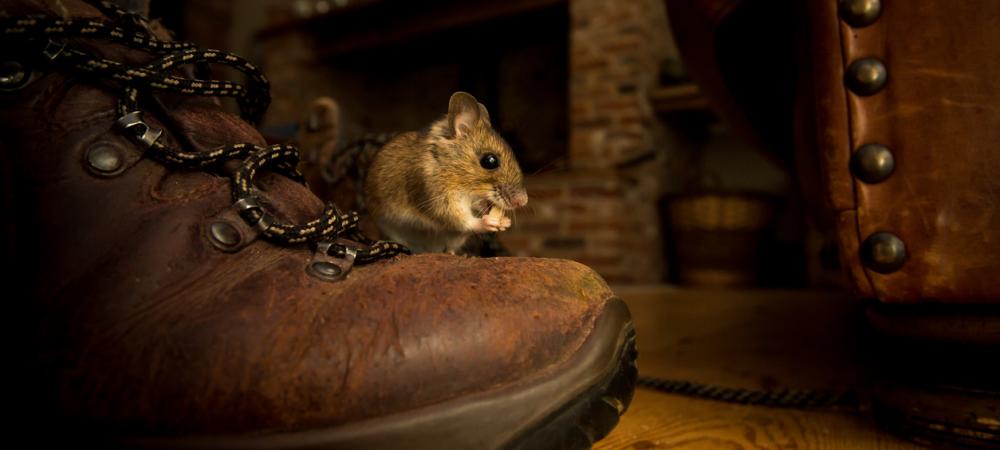How South Carolina's Humid Climate Attracts Rodents and What to Do About It

South Carolina's warm, humid climate is ideal for many things—lush gardens, picturesque beaches, and unfortunately, rodents. The state's weather creates a perfect environment for rats and mice to thrive, leading to increased infestations in homes and businesses. Understanding how the climate impacts rodent behavior and taking climate-specific preventive measures can help protect your property.
Why South Carolina's Humid Climate Attracts Rodents
1. Humidity Encourages Rodent Breeding
Rats and mice are highly adaptable and reproduce rapidly in warm, moist conditions. South Carolina's humid environment provides rodents with the necessary resources—water, food, and shelter—to breed and thrive year-round. With temperatures rarely dipping to freezing, rodents remain active during all seasons, exacerbating the problem.
2. Ample Food and Water Sources
The state’s consistent rainfall and mild winters create an abundance of vegetation, insects, and water sources, which rodents rely on for sustenance. Standing water from clogged gutters, birdbaths, or poorly draining soil can act as a magnet for thirsty rodents. Additionally, trash bins, pet food bowls, and compost piles often serve as easy food sources, making residential areas particularly vulnerable.
3. Rodents Seeking Shelter from Storms
South Carolina’s frequent rainstorms and occasional hurricanes force rodents to seek higher, drier ground. Homes, garages, and attics become prime real estate for rodents looking to escape flooding and excessive moisture outdoors. Roof rats, in particular, are adept climbers and often use overhanging tree branches to access homes during storms.
4. Dense Vegetation Offers Hiding Spots
South Carolina’s lush landscaping, including thick shrubs, vines, and trees, creates an environment where rodents can hide and build nests. Overgrown areas near homes often serve as launching points for rats and mice to invade.
The Risks of Rodent Infestations in South Carolina
Rodent infestations aren’t just inconvenient; they pose serious risks to health and property:
- Health Threats: Rodents can spread diseases like hantavirus, leptospirosis, and salmonella through droppings, urine, and bites.
- Property Damage: Rats and mice are notorious for chewing through wires, insulation, and wood, potentially causing electrical fires or structural damage.
- Contamination: Food and surfaces can become contaminated, especially in kitchens, putting your family at risk.
Climate-Specific Rodent Prevention Measures
Manage Moisture Around Your Home
- Repair leaky pipes, faucets, and irrigation systems to eliminate water sources.
- Use dehumidifiers in crawl spaces, basements, and other damp areas to reduce indoor humidity.
- Ensure proper drainage around your property by installing gutters and downspouts.
Seal Entry Points
- Inspect your home for gaps, cracks, and holes where rodents can enter.
- Use steel wool, caulk, or metal mesh to seal small openings.
- Pay special attention to areas around vents, utility pipes, and door frames.
Store Food Properly
- Keep pet food, birdseed, and human food in airtight, rodent-proof containers.
- Regularly clean up crumbs and spills in kitchens and dining areas.
- Avoid leaving trash outside overnight, especially in easily accessible bags.
Eliminate Outdoor Rodent Attractions
- Trim back overgrown vegetation that provides cover for rats and mice.
- Remove piles of wood, debris, or leaves that serve as nesting sites.
- Keep garbage cans sealed tightly and store them away from the house.
Use Natural Deterrents
- Plant rodent-repelling herbs like mint, lavender, or rosemary around the perimeter of your home.
- Apply essential oil sprays, such as peppermint or eucalyptus, in areas where rodents might enter.
Schedule Regular Pest Inspections
- Partner with a professional rodent control company for routine inspections.
- Early detection can help prevent small rodent problems from turning into infestations.
- Ask for climate-specific advice tailored to South Carolina homes.
DIY Rodent Control vs. Professional Services
While some homeowners may attempt to address rodent problems themselves using traps or poisons, these methods often provide only temporary relief. Rodents are clever and can adapt to certain baits, making DIY efforts less effective over time. Additionally, improperly handled traps or poisons can harm pets, wildlife, or even children.
Professional rodent control services in South Carolina offer a comprehensive approach, including:
- Inspection and identification of rodent entry points.
- Customized treatment plans based on your home’s unique needs.
- Follow-up visits to ensure the problem is fully resolved.
The Importance of Taking Action
Rodents multiply quickly, and what starts as a small problem can escalate into a full-blown infestation. Taking proactive measures to control moisture, seal your home, and eliminate food sources can significantly reduce your risk of attracting rats and mice.
Protect Your Property from Rodents Today
Don’t let South Carolina's humid climate make your home a haven for rats and mice. By managing moisture, sealing entry points, and taking proactive steps, you can reduce the chances of an infestation. For complete peace of mind, consider partnering with a professional rodent control service to safeguard your property.
